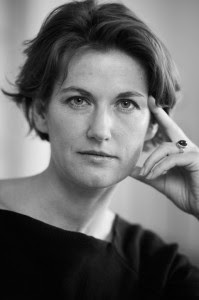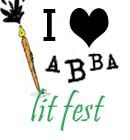 |
| Janne Teller |
At 4.30pm on 22nd August I will hopefully be in a tent at the Edinburgh International Book Festival listening to Danish author Janne Teller talking about her incredible novel - NOTHING
I am fascinated to hear what drove her to write it.
"A Lord of the Flies for the twenty-first century - bleak, existential and yet utterly gripping'
It has also been described as 'disturbing', 'horrifying', 'uncomfortable' and 'intriguing',
I found it was all of these things but it was also thought- provoking and fearless.
 |
| Pub. STRIDENT Publishing 2011 |
"When Pierre Anthon left school that day he realised that nothing was worth doing because nothing meant anything anyway.
The rest of us stayed on."
The children in Nothing are a class of 14yr olds. When one of their classmates leaves school telling them that nothing matters and life isn't worth the bother, they go to horrific lengths to persuade him, and themselves, that he is wrong. As he sits in a plum tree their efforts to create a 'heap of meaning', drive them to dreadful lengths.
I started reading Nothing and found myself beginning to wonder what does make life matter, and perhaps that is exactly what it is about.
But as I read on I found myself more and more cautious when it came to turning the page, almost afraid to discover just how far these children would go in their quest to persuade Pierre Anthon that he was wrong.
Nothing is the winner of:Le Prix Libbylit 2008, and the Best Children’s Book Prize awarded by the Danish Cultural Ministry.
The Danish Cultural Minister said;
"Janne Teller has written a novel about nothing less than the meaning of life. This book makes a deep impression on the reader and incites continued reflection."
David Almond is quoted as saying it is
'Bold, beautiful, terrifying . One of the greatest young adult books I have ever read.'
Nothing is one of those books that will challenge you, but I would suggest that it is not for the gentle-hearted and not for younger readers.
If you can, why not come along and listen to Janne Teller at the Edinburgh International Book Festival and hear for yourself what she has to say about it.
Nothing is always going to be a controversial book - so do you agree with the comments and quotes above?
It is, as always, up to you the reader to decide.
Originally published in Danish in 2000.
Translated from Danish by Martin Aitken 2010
2011 edition published in the UK by Strident Publishing
Originally published in Danish in 2000.
Translated from Danish by Martin Aitken 2010
2011 edition published in the UK by Strident Publishing















